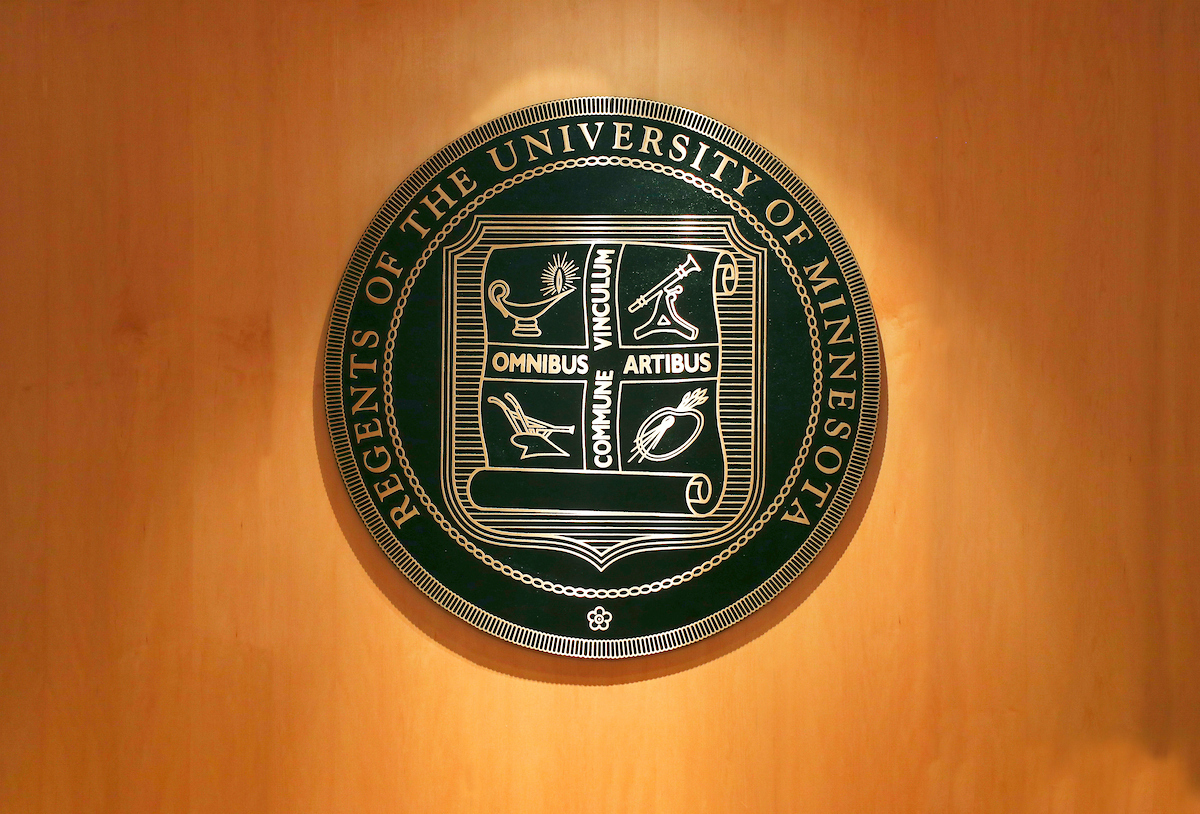
Approval follows a full budget review, public forum and online public comment period in recent weeks
Following its review of the University’s annual operating budget earlier this month, as well as a public forum and online public comment period for additional input, the Board of Regents approved the U of M’s fiscal year 2024 budget at a special meeting today.
“This balanced budget reflects the University of Minnesota’s commitment to our role as the state’s premier research university while prioritizing the education of students and positioning them for successful careers in Minnesota’s workforce, as well as engaging with Minnesota communities to make our state stronger,” said Board Chair Janie Mayeron. “I’m looking forward to seeing this budget in action in the coming year, as well as continued discussions with my Board colleagues about how we can strategically invest in supporting our students, faculty and staff as they achieve at the highest levels into the future.”
The approved budget advances the University’s strategic goals, which center on student well-being and success. The focus on student outcomes is clearly represented throughout the University’s comprehensive systemwide strategic plan, MPact 2025, which details more than 20 goals focused entirely on students, including growing investments in financial aid, reducing student debt, reinforcing the importance of on-time graduation and developing pathways to successful careers. Commitments to supporting students, as well as faculty and staff, are priorities throughout the budget.
Out of necessity, the budget also accounts for continued inflationary pressures and other revenue challenges, including those related to tuition revenue in the past year. Navigating these budget pressures will require, in part, continued and difficult internal reallocation of existing resources.
The fiscal 2024 operating budget anticipates about $4.5 billion in revenues to balance approximately $4.4 billion in expenses. Both of the figures have grown year-over-year, but forecasts indicate costs will rise by 4%, a figure that revenue growth will not be able to fully match.
Accomplishing any of the University’s strategic goals — those focused solely on student success, as well as those tied to research, technology commercialization, community engagement and more — demands the University attracts and retains talented faculty and staff. The budget continues to invest in these 27,000-plus employees statewide, with merit-based increases that average 3.75%.
Previous budget discussions with the Board and state lawmakers anticipated an increase in undergraduate tuition. However, growth in federal and state aid for students, as well as the University’s historic investments in financial aid, will offset tuition rate changes for many undergraduate students. For the coming year, the Crookston, Duluth and Morris campuses will raise undergraduate tuition by 1%, while Rochester and the Twin Cities will increase by 3.5%. These changes extend the University’s commitment to holding tuition rate increases below the rate of inflation, a practice that’s become more challenging as the cost of necessary expenses have grown and state investment as a percentage of the budget has decreased.
To balance the budget’s investments in employees, maintaining and improving infrastructure (including physical buildings and technology), recruiting students and staff, and growing already significant investments in student financial aid, all University units have been pushed to improve efficiency and focus resources on the highest strategic impacts or needs, particularly those that directly serve students and the University’s mission. These efforts are essential to mitigating $178 million in increased year-over-year expenses.
The Board of Regents is scheduled to meet next on July 12-14, 2023. Visit regents.umn.edu for more information.
- Categories:
- Campus Affairs
- Board of Regents





